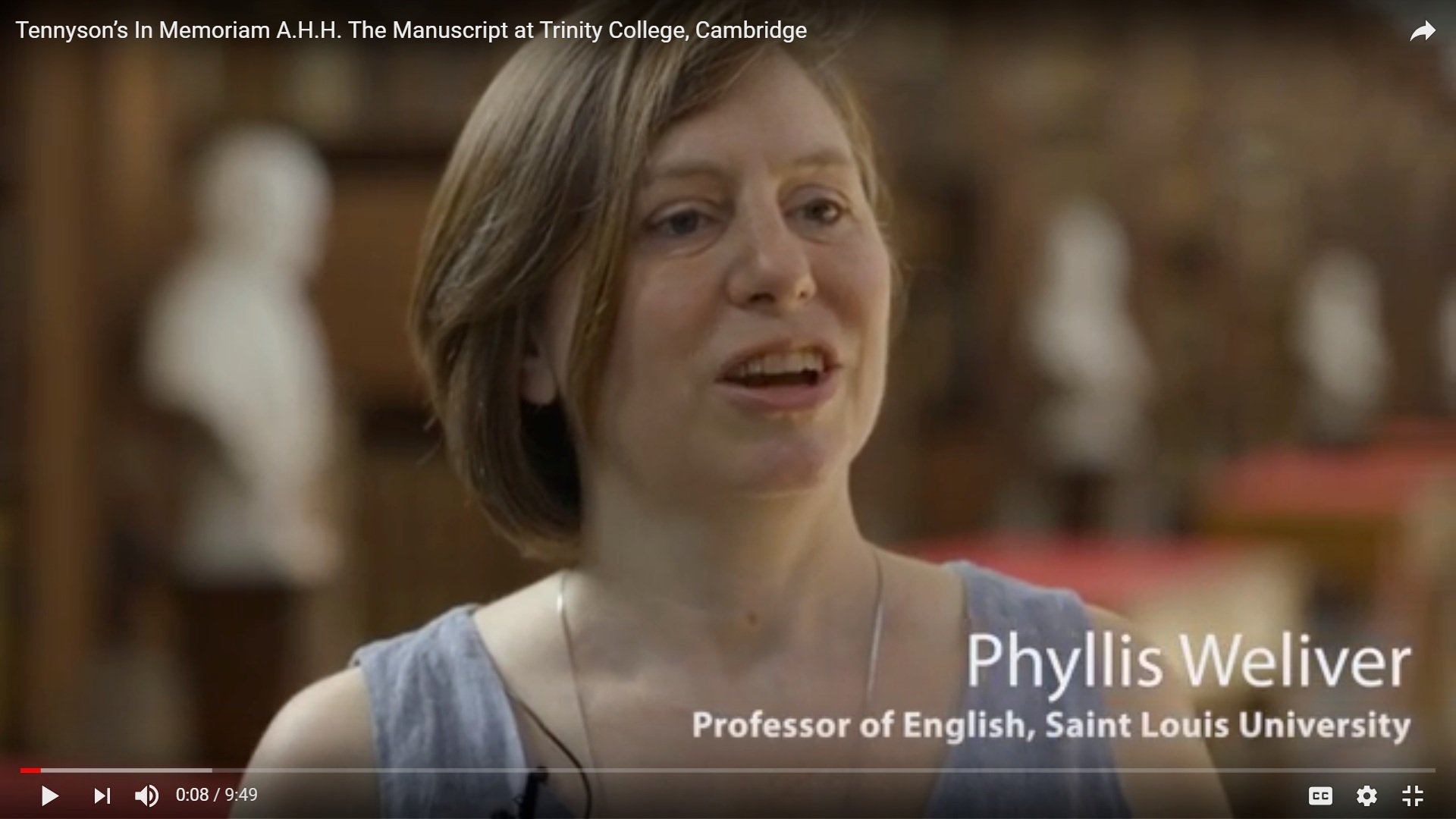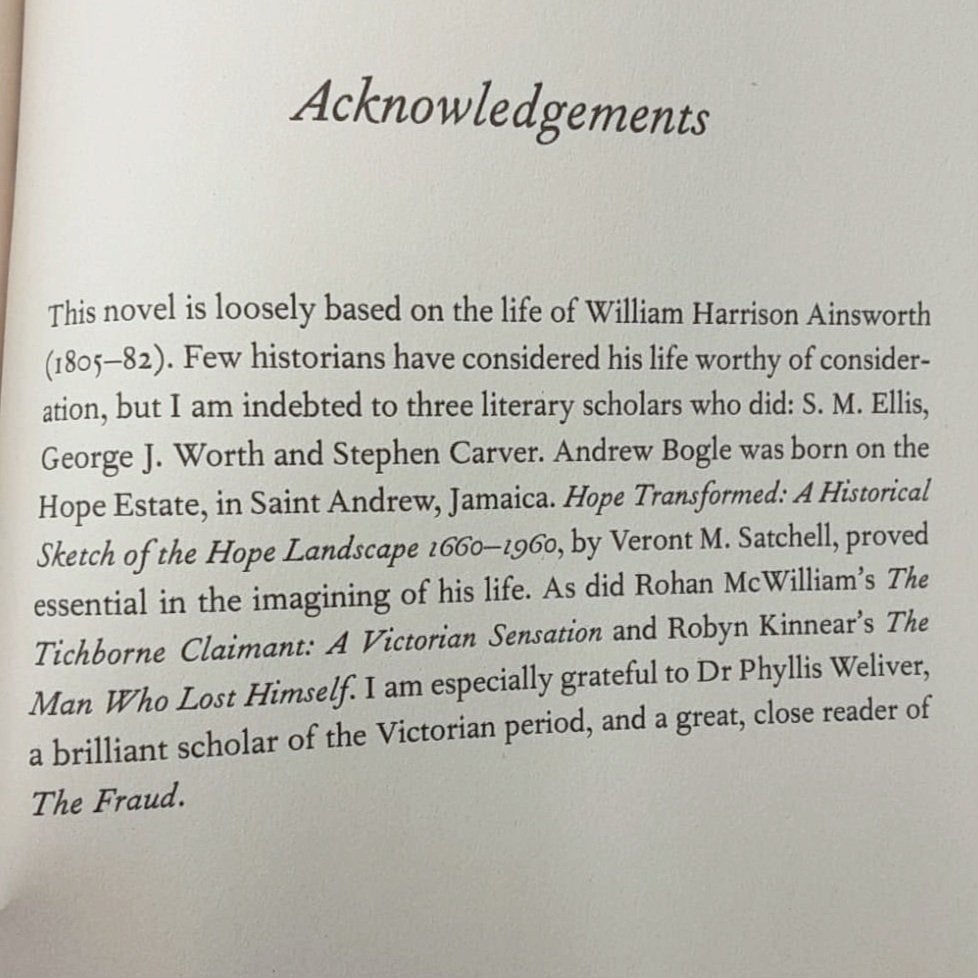Phyllis Weliver discusses unusual aspects of Tennyson's manuscript of In Memoriam A.H.H. at Trinity College, Cambridge.
Research Agenda
I love to think about literature in a historicized way that criss-crosses genres and even disciplines. My research concentrates on making connections among literature, music and other aspects of Victorian life, including liberalism; sociability; women's culture; identities of class and ethnicity; and discourses of science (e.g., evolutionary biology, mesmerism, multiple consciousness, group management, and theories of memory and identity). The result is a sense of nineteenth-century British poetry, fictional and non-fictional prose, opera and life writing as partaking in a richly interactive intellectual and cultural history. I consider innovations in style and technique as crucial to that literary content.
My scholarly program thus engages with diversities of form, discipline, and identity. In terms of the last, I have an ongoing curiousity about nineteenth-century power structures that pay attention to marginalized peoples. To communicate this rich variety, my work takes the form of both traditional print publication and open access digital resources.
Public Humanities
Firmly believing that academic thinking should engage the wider public, I enjoy opportunities to reach beyond the ivy tower. This work ranges from open access digital projects to writing and presenting for the media; writing creatively; and providing feedback to Zadie Smith on her historical novel, The Fraud (Sept 2023).
Zadie Smith, The Fraud (2023)
Current Projects
I am working on two monographs at present. Under consideration with the Cambridge Studies in Nineteenth-Century Literature and Culture series, Liberalism, Music and Literature in Nineteenth-Century Britain (working title) explores how the idea of music in literary texts and in partnership with musical settings (songs) performed the idealism in liberalism. Along with poems, novels and vocal music, it studies a range of published and unpublished material by Oxbridge societies, slum settlement workers, Pan-African advocates, and pro-Aboriginal Australians. My approach acknowledges systemic discriminations, while simultaneously explicating how many disenfranchised peoples found Victorian liberalism to be valuable. The second (short) monograph, The Soul of Reading in Victorian England, complicates perceptions of women and Victorian book culture.
Katharine Ellis and I are editing the first coursebook to teach undergraduates how to bring together literature and music. Reading Texts in Nineteenth-Century Music and Literature, contracted with Boydell & Brewer, is forthcoming in 2025.
Within digital humanities, I am co-directing the Sounding Victorian suite of projects with Sophie Fuller, leading the Sounding Tennyson project, and collaborating with Ewan Jones on the Tennyson collection hosted by Cambridge Digital Library. Together, the Tennyson projects make up the consortium, Tennysons Archive: Digitising the Work of the Tennysons, Plural. The aspects of this digital work that are focused on presenting sound are internationally innovative. Sounding Tennyson is the first project worldwide to use sound with IIIF and has provided the origin for multiple fixtures in the A/V group.

